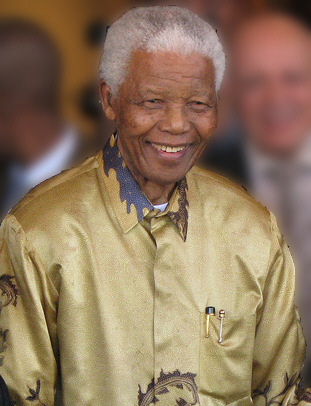IRE Director reflects on Mandela’s influence across generations
Nelson Mandela, a Nobel Peace prize recipient and the first democratically-elected president of South Africa, profoundly influenced the people of his nation as he fought against apartheid, a system of racial segregation operating from 1948 to 1994 in that country.
 But Mandela’s influence stretches far beyond the borders of South Africa.
But Mandela’s influence stretches far beyond the borders of South Africa.
As many mourn the loss of a world leader and celebrate his achievements, Dr. Michael R. Twyman, director of the UALR Institute on Race and Ethnicity, reflected on how Mandela’s influence and message resonated with people of Twyman’s generation.
“It was the mid-1980s and South African apartheid was at the fore of the international stage in a way that it hadn’t been before,” Twyman said.
“Mandela was again at the center of the debate. There was a call for intensified economic sanctions and political pressure from around the globe. I was an undergraduate student at Fisk University. I felt empowered and this was my moment,” he added.
Like other areas in the U.S. and across the world, Mandela inspired Twyman and other students to take action.
“We conducted peaceful protests focusing our attention on corporations in the Nashville area who did business in South Africa, and we placed pressure on trustee members associated with our respective institutions who had direct or indirect investment ties that supported apartheid,” Twyman said.
Thanks in part to international pressure, Mandela was released from prison in 1990 and was elected president in 1994 during the country’s first democratic elections.
Less than a decade later, Twyman was working as a special assistant to the mayor of Indianapolis and was selected to be the city’s liaison when the 1993 National Convention of the NAACP was held in the city for the first time.
“We were blessed to have Mr. Mandela attend and address the audience…as a free man! And the organization presented him with the W.E.B. DuBois International Medal,” said Twyman.
“I was involved in honoring a man I truly admired. This was one of life’s full circle moments for me.”
Now as director of the Institute, which is charged with being a vehicle of racial and ethnic healing in Arkansas, Twyman asserts that Mandela’s message is still as relevant today as it is inspiring.
“Mandela preached the power of education, unity, and reconciliation. Today the world celebrates Mandela’s legacy, and we all are indebted to his sacrifice. His example proves once again the power of one, and the moment to act is now,” he said.
On Thursday, Dec. 5, Mandela passed away at his home surrounded by his family in Johannesburg. His country held a memorial service for him Tuesday, Dec. 10.
Photo caption: Nelson Mandela (photo courtesy of South Africa The Good News / www.sagoodnews.co.za)